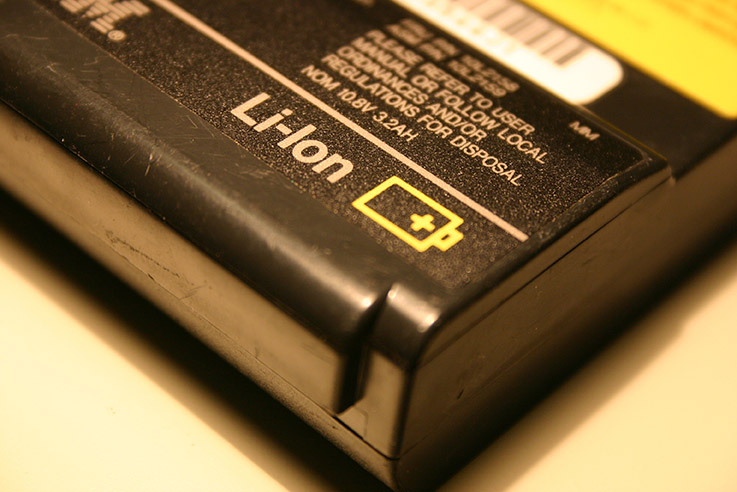
Federal researchers have developed a process that could make lithium-ion battery recycling more economically viable. | Allyson Kitts / Shutterstock
Scientists announce a breakthrough in recovering lithium-ion battery metals, two battery recycling companies merge, and an “AquaRefining” R&D center opens.
Metals sorting process: Argonne National Laboratory (ANL) says scientists at its ReCell Center, a battery recycling R&D lab, have developed a process that could make lithium-ion battery recycling more economically viable. According to an ANL write-up, researchers at Michigan Technological University (MTU), part of the ReCell team, developed a process for separating materials that make up the cathode, or the battery’s positively charged electrode, using a new twist on an old wet-sorting process called froth flotation. ANL has also optimized the froth floatation process for sorting shredded metals and plastics from e-scrap.
Recycling companies combine: Battery recycling company Retriev Technologies will merge with battery management and recycling business Heritage Battery Recycling, according to a press release. The combined company, which will operate under the Retriev Technologies brand. The combination was made with an eye toward recycling electric vehicle batteries and supplying materials to EV battery makers. Earlier this year, Retriev struck a partnership with electronics recycling and reuse company HOBI International, which will help collect and supply EV batteries to Retriev’s Lancaster, Ohio recycling plant.
R&D center opens: Aqua Metals, which uses an “AquaRefining” technology to extract metals from batteries, has opened a lithium battery recycling innovation center in Reno, Nev. The company previously focused on recovering lead from lead-acid batteries but is moving to serve expected demand for recycling of lithium-ion batteries in electric vehicles, renewable energy systems and more. According to a press release, early phase testing shows promise using the technology to recover cobalt, nickel and copper from batteries. The new facility, which is located near other technology companies such as Tesla and Google, serves as Aqua Metals’ headquarters and R&D center.